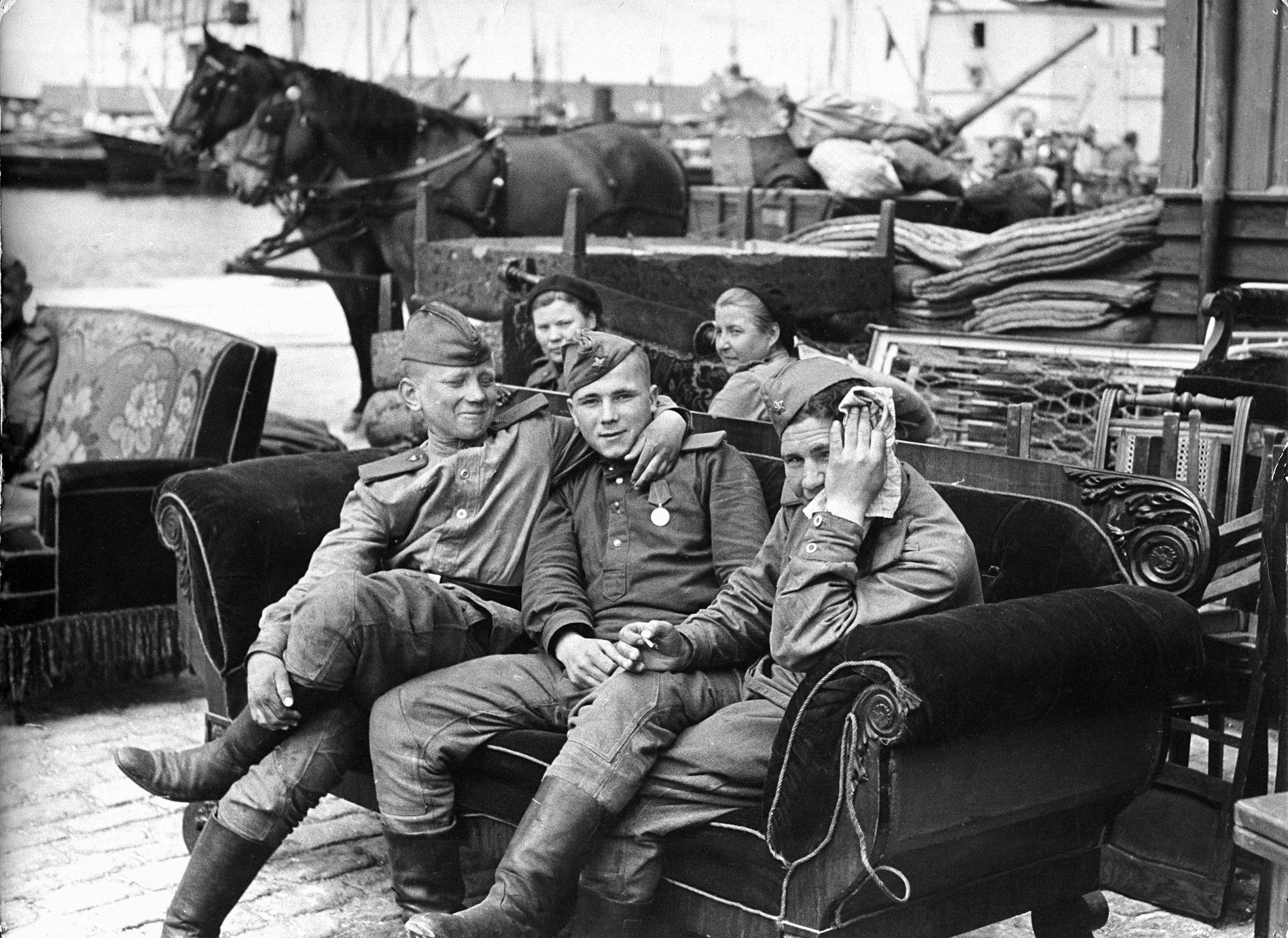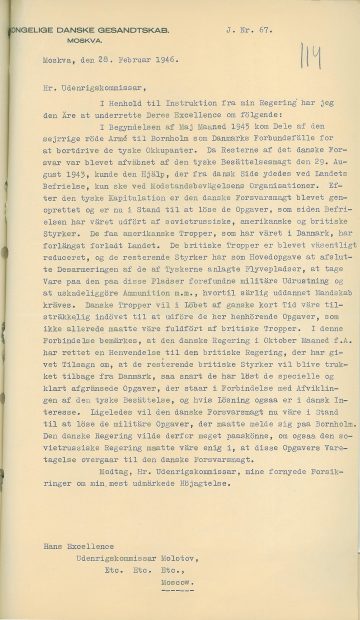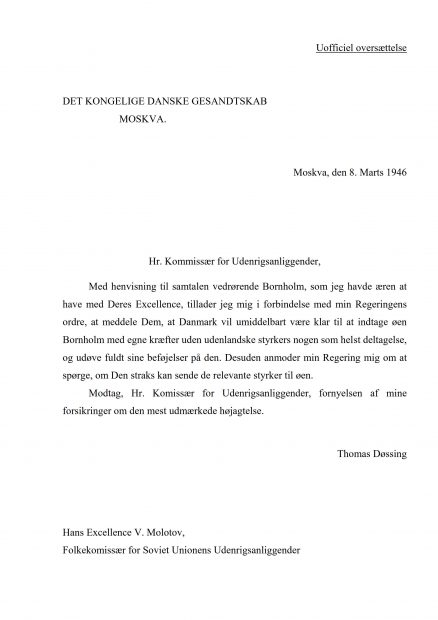Last week Denmark and the US revealed that they were working on a new defence agreement that could lead to American troops being stationed in Denmark in the future.
With the conflict brewing in Ukraine, Russia has voiced concerns about foreign troops being stationed on the island of Bornholm, the most easterly point of Denmark in the Baltic Sea.
To support its position, the Russian Embassy in Denmark has produced a note from 1946 relating to the Soviet handover of Bornholm to Denmark following WWII.
Russia maintains that the note – an official correspondence between Vyacheslav Molotov, Soviet Union’s foreign minister at the time, and Danish diplomat Thomas Døssing – proves Denmark agreed to never allow foreign troops onto the island.
“1946 Notes from #DK and #RU sides on the issue of non-deployment of foreign troops on #Bornholm,” wrote the Russian Embassy in Denmark on Twitter.
“The exchange of these documents constitutes an agreement. Duration is not specified. In accordance with international law this means the agreement is open-ended and remains in force.”
READ ALSO: Denmark to step up defence co-operation with the US
Experts: Not relevant
However, two experts who have spoken to TV2 News say that the note is not relevant today.
Cornelius Wiesener, a postdoc at the Department of Law at the University of Copenhagen, contends that the note does not indicate that an agreement is in place relating to foreign troops being on Bornholm in the future.
“As I understand it, Denmark doesn’t write that US troops are never allowed to be on Bornholm. Molotov doesn’t write anywhere that this is a condition for the withdrawal,” he told TV2 News.
Kenneth Øhlenschlæger Buh, a military researcher at the Royal Danish Defence College, echoed those sentiments.
He argues that the validity of the note is questionable given that Bornholm was occupied by the Soviet Union at the time.
“We need to remember several things here. We’re talking about 1946. NATO didn’t exist and wasn’t even being planned. We had a situation where Europe was divided into two blocs. And at the time, Denmark was aiming towards being neutral,” said Buh.
Russia’s ambassador to Denmark, Vladimir Barbin, has warned Denmark against letting US troops onto Bornholm.
“If Denmark permits such a move – if foreign troops are allowed on Bornholm – Russia will be forced to consider the implications it will have on the relationship between Russia and Denmark,” Barbin told Berlingske.
Denmark’s foreign minister, Jeppe Kofod, countered that it is Denmark that decides what happens in Denmark, not Russia.
Check out the 1946 notes below.

















